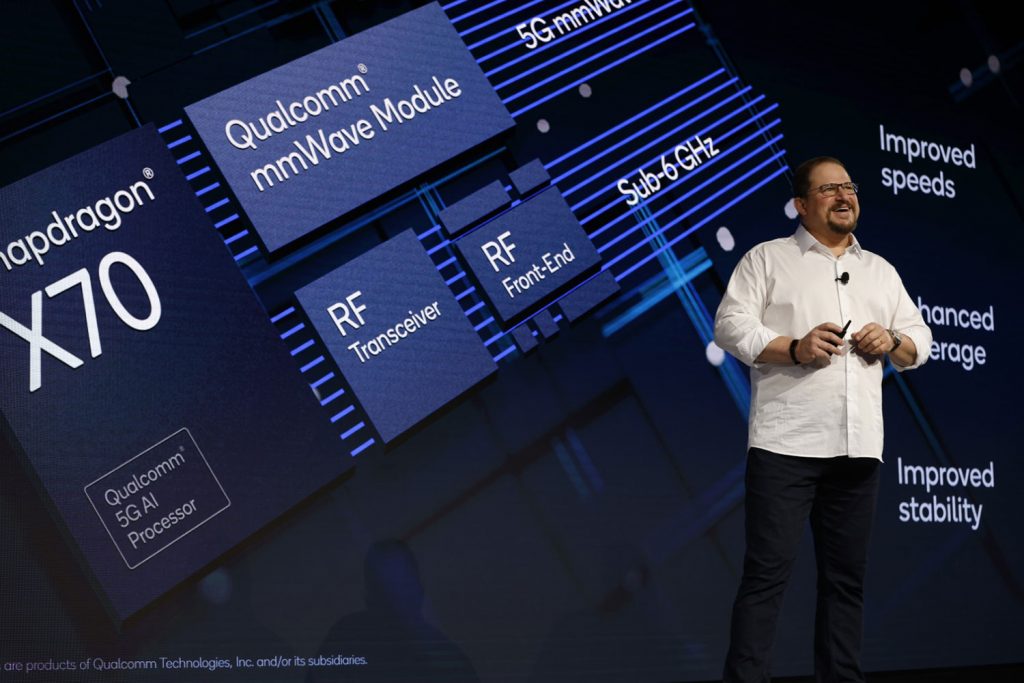[ad_1]
At the Qualcomm 5G Summit, Qualcomm has revealed the extensive impact of artificial intelligence (AI) on the performance of its latest Snapdragon X70 modem.
The modem was announced earlier this year, and the built-in AI computing unit wasn’t a secret, but its effectiveness was unknown until now.
Qualcomm claims its built-in AI extends the effective range of mmWave by 20% and boosts the throughput by 28% to 73% at the edge of the cell coverage (depending on conditions).
These numbers are a rather extraordinary example of how AI can increase outcomes for all kinds of “signal” problems. We’ve already seen AI-based technology applied to ray-tracing denoising or other forms of image processing with great success.
The same can be done with radio signal processing, where the modem can learn how to interpret real-world radio signals in various challenging conditions. For example, a tree might interfere, or perhaps the radio wave bounced on a wall or passed through a material . AI helps the modem figure out what was the original signal.
It is the equivalent of having a Qualcomm engineer tune the modem settings at every possible location, except it’s done automatically and continuously by the AI. Truly innovative.
Qualcomm also says that its modem is smart enough to infer what the signal should look like in the near future. That could enable better connectivity for moving vehicles, for example.
Although both 4G and 5G will benefit from these improvements, it looks like 5G mmWave (the fastest 5G) is the one that should help the most as it’s the trickiest form of 5G in terms of coverage. mmWave ideally requires a line of sight to the base station, and its signal can quickly degrade if it collides with anything along the way.
AI’s added performance is even more relevant for “standalone mmWave” (without 4G or 5G Sub-6 support). Standalone mmWave could be crucial to connect homes to a nearby Fiber network at a very high speed without deploying cables or digging trenches.
In conclusion, this is very exciting, and we can expect Qualcomm to fine-tune its AI neural networks as more data becomes available and modems can fit ever-larger networks.
Filed in ..
[ad_2]
Source link
